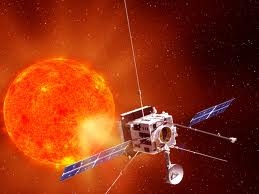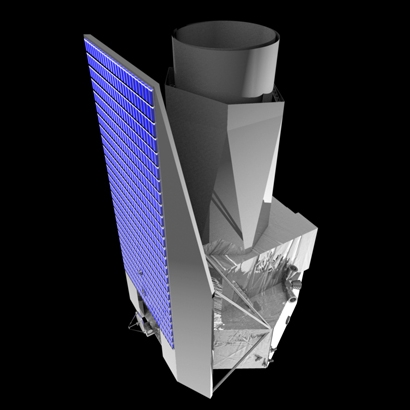- How does the Sun work?
- What is the role of dark energy in the Universe expansion?
These are the two questions the ESA's Space Science Advisory Committee chose to give priority for the next years by selecting the Solar Orbiter and Euclid missions.
This choice put an end to a screening process started in 2007 by a call for tenders with about fifty proposals.
Those missions are planned to be launched in 2017 (Solar Orbiter) and 2019 (Euclid).
“This selection is a great success for the French space science community. After supporting the teams for the phase of project study, CNES is ready to put a lot of itself, side-by-side with the laboratories and partners, to make a success of the two selected missions” Fabienne Casoli (CNES' Head, Space Sciences, Microgravity and Exploration Office) said.
Solar Orbiter will be studying the Sun

The Solar Orbiter probe will perform a close approach of the Sun, at less than 60 solar radius, to study the source regions of the solar wind. It will observe the polar regions of our star and provide exceptional information to understand how the Sun works and varies thanks to remote and in situ measurements.
Six of the ten instruments on board Solar Orbiter will feature French instrumental contributions. Among them, the Radio and Plasma Waves experiment (RPW) was placed under the scientific responsibility of Milan Maksimovic (LESIA) and technical responsibility of CNES.
Many French scientists are involved in this mission: CNRS/INSU, CEA/IRFU and a dozen of laboratories among which the IAS (Orsay), IRAP (Toulouse), LESIA (Meudon and Paris), LPC2E (Orléans), LPP (Palaiseau and Saint-Maur-des-Fossés) and IRFU (Saclay).
Euclid will be studying the reason of the universe expansion acceleration

In order to better understand the reason of the universe expansion acceleration, Euclid will map hundred of million galaxies on a large part of the sky. The objective: analysing the apparent deformations under the effect of dark matter and its distribution at large scale. This will enable scientists to have a better approach to the mysterious nature of dark energy which composes around 70% of the Universe content.
To do so, the satellite will bring a visible and near infrared imaging instrument (VIS) and a near infrared spectrometer photometer (NISP), developed by a European consortium leaded by French Principal Investigator, Yannick Mellier (IAP). An important part of the project is the development of its ground segment thanks to a great participation of both CNES and laboratories.
Euclid emerged from two proposals, one French, DUNE, which was the subject of a Phase 0 at CNES. Many French scientists are involved in this mission: CNRS/INSU, CNRS/IN2P3, CEA and many laboratories among which the APC (Paris), CPPM (Marseille), IAP (Orsay), LAM (Marseille), IRFU (Saclay) provided the most important contributions to both the payloads and the ground segment
For both missions, CNES bring together all the French contributions to payloads and data processing. By supporting Euclid and Solar Orbiter, CNES reaffirms its readiness to accompany the French science community in sciences of the Universe.